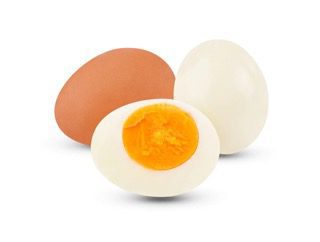

Boiled eggs are a popular and nutritious food for humans, and can also be beneficial for dogs when given in moderation. However, it is important to note that the egg should be fully cooked and the shell removed before feeding it to your dog. Raw eggs can contain harmful bacteria like salmonella, which can cause digestive issues and other health problems in dogs.
Eggs are a great source of protein, vitamins, and minerals, which can help support a dog’s overall health and wellbeing.
While boiled eggs can be a healthy addition to a dog’s diet, there are also some risks associated with feeding them to your pet. Dogs with sensitive stomachs may experience digestive upset or diarrhea if they eat too many eggs or if they are not used to them. Additionally, some dogs may be allergic to eggs, which can cause symptoms like itching, hives, and swelling. It is always best to introduce new foods to your dog’s diet gradually and in small amounts to monitor their reaction.
It is important to note that the egg should be fully cooked and the shell removed before feeding it to your dog.
In extreme cases, if your dog shows signs of an allergic reaction or severe digestive upset after eating boiled eggs, it is important to seek veterinary care immediately. Your vet may recommend treatment to help alleviate symptoms and prevent complications. If your dog has a history of digestive issues or allergies, it may be best to avoid feeding them boiled eggs altogether.
Safer alternatives to boiled eggs for dogs include lean meats like chicken or turkey, low-fat dairy products like plain yogurt or cottage cheese, and fresh fruits and vegetables like apples, carrots, and green beans. These foods can provide similar nutritional benefits without the risks associated with eggs. As always, it is important to consult with your veterinarian before making any changes to your dog's diet.